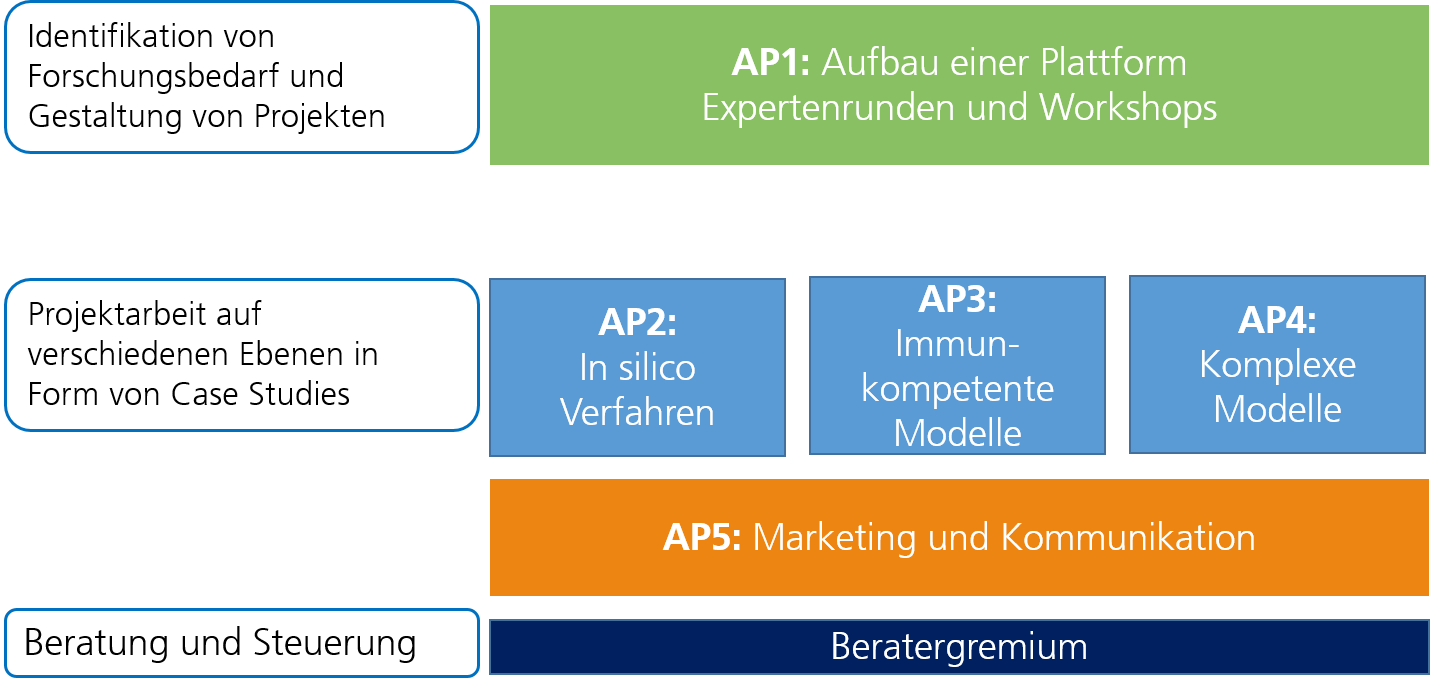Fraunhofer on the way to predictive models of the future
Animal experiments are permitted "with reasonable cause" to answer scientific questions in basic research and in biomedical research for the diagnosis and treatment of diseases in humans and animals. They are also required in regulatory toxicology for legally mandated approvals of products (e.g., chemicals or drugs); in each case, it must be determined "whether the purpose pursued cannot be achieved by other methods or procedures." These other methods or procedures are often referred to as "alternative methods". In the narrower sense, they primarily include approaches that replace animal testing. But they also include approaches that reduce or improve animal testing.
Alternative methods as an integral part of research
Alternative test methods are an important, integral part of research. However, this does not necessarily lead to the complete replacement of animal testing. Rather, these approaches exist in parallel and/or complementary to each other. Moreover, only very few animal experiments can (so far) be completely replaced by alternative methods.
A variety of methods or procedures exist to avoid or reduce the use of animals in experiments or to alleviate the expected suffering of the animals. These alternative methods or procedures are based, for example, on computer models, cell and tissue culture, the use of alternative organisms, or the improvement of animal experiments. Nevertheless, there is an enormous need, e.g. for predictive computer-based models or for test systems that predict the complex disease process in the patient.
 Fraunhofer Cluster of Excellence Immune-Mediated Diseases
Fraunhofer Cluster of Excellence Immune-Mediated Diseases